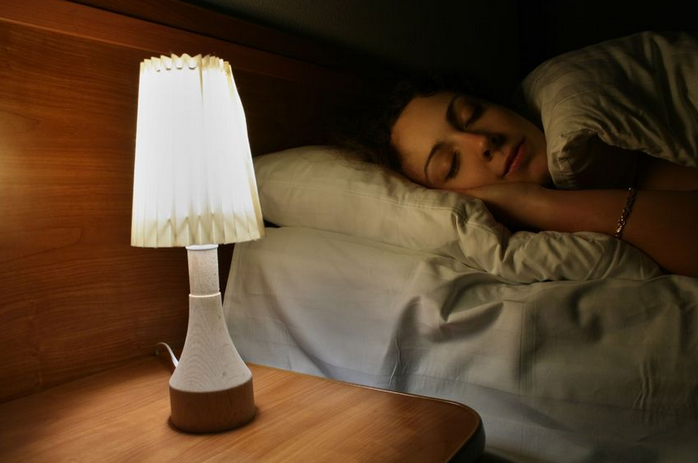Every now and then, it’s normal to fall asleep with the lights on after a hard day. However, a recent study at the Institute of Cancer Research in London suggests that the amount of light in a woman’s bedroom may be associated with obesity.
Published in the American Journal of Epidemiology and reported by BBC News, the study involved surveying 113,000 women. Each one was asked to rate the light in their bedroom based on these categories:
- Enough light to read a book
- Enough light to see across the room, but not enough to read a book
- Enough light to see a hand in front of you, but not see across the room
- Too dark to see anything or wearing a mask to sleep
The answers were then compared to measures of obesity, including their body mass index, hip-to-waist ratio, and waist circumference. All of the measurements were found to be higher in the women who had more light in their bedrooms.
While the study didn’t contain enough evidence to prove that a darker bedroom would have an impact on weight, it has caught the attention of other research teams. An explanation may be the light is disrupting the natural body clock that controls hunger, mood, physical strength and sleep.
On your journey to sleep better, remember that your sleep environment does have an impact your snooze. Keep your room cool, dark, and free of electronics and noise for a higher sleep quality every night!


No comments yet.